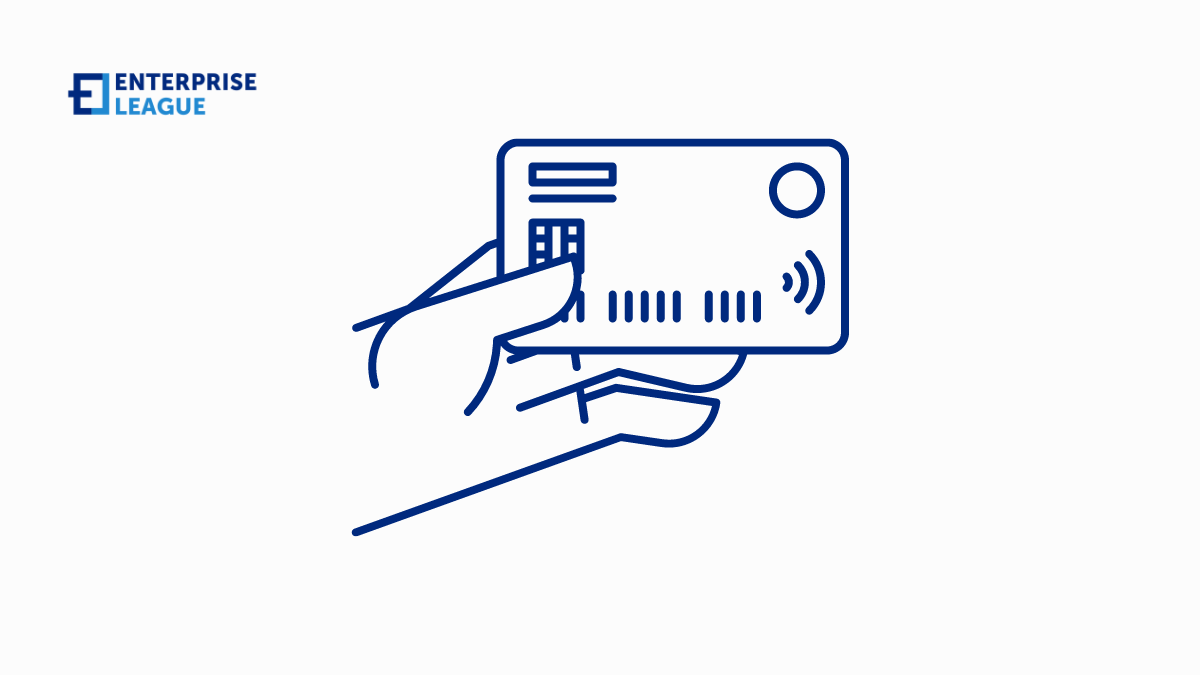In the world of business, having the right financial tools at your disposal is crucial. A business credit card can be such a tool as it helps manage your company’s expenses and separates personal and business spending.
It also enhances your ability to invest wisely and adapt to market changes efficiently. Building business credit effectively can only be achieved through the consistent use of trustworthy financial resources. One such option is Crédito which helps compare the best credit cards and loans specifically in Mexico. However, you need to know how to choose the right credit card line for your business, which is what we’ll talk about today. But let’s start with the advantages.
Benefits of a business credit card
Having a business credit card up your sleeve is like finding a secret weapon you didn’t know you needed. Used smartly, it’s not just a way to pay for things. It turns into this super tool that can really push your business forward in all sorts of ways.
The trick isn’t just to have it but to know how to make the most of it. We’ve put together a few tips to help you see this tool’s real potential:
Improved cash flow management
A business credit card gives you the flexibility to cover expenses without immediately tapping into your cash reserves. This allows for smoother operation during the inevitable ebbs and flows of business cash flow.
Additionally, it makes it easier to deal with immediate or unexpected expenses (which are always around the corner, somewhere). You can cover costs now and pay later when your receivables catch up, thereby smoothing out cash flow wrinkles without missing a beat.
This level of flexibility allows you to seize any growth opportunity that comes your way, even when your bank balance doesn’t look too friendly.
Building business credit
A business credit card is not just a handy financial tool, it’s also a way to build up your business’s good name in the world of finance. Consistent and responsible use of a business credit card can help build your company’s credit profile, making it easier to secure loans with favorable terms down the line.
Think of it this way: every time you use your business credit card and pay off what you owe on time, it sends out a positive signal. Each purchase and every payment is helping you build a solid reputation for your business.
A good reputation in the world of finances is not only useful when considering a loan. It also helps your suppliers see you are a trustworthy business partner who is serious about making payments on time. Therefore, you should look at a business credit card as a way to lay down a foundation for future growth and stability.
Business Credit Card Options to Build Your Credit Faster
If you’re looking for real-world solutions, here are a few providers that can help your company establish and grow business credit:
FairFigure
FairFigure offers a business credit builder card designed to help companies strengthen their credit profile. It provides same-day funding, flexible repayment terms, and reports to multiple major business credit bureaus. For small businesses and startups, it’s a practical way to build business credit while managing day-to-day expenses.
Divvy (by BILL)
Divvy combines a business credit card with a spend management platform. Along with reporting payment activity to the credit bureaus, it gives businesses smart budgeting and expense-tracking tools. This makes it easier to control spending while steadily improving creditworthiness.
Brex
Brex is designed for startups and fast-growing companies. Instead of relying on personal credit scores, it evaluates your business’s financials to determine limits. Brex also reports to credit bureaus and provides higher credit limits alongside useful software integrations for managing expenses and cash flow.
Access to higher credit limits
Generally speaking, business credit cards offer higher credit limits compared to personal cards. That’s because lenders know businesses tend to have more extensive operating expenses and, therefore, might need extra funding wiggle room.
This scaled-up limit can be invaluable for funding significant expenses or investments without stalling other operational mechanisms due to fund allocation issues.
Easier expense tracking and reporting
Imagine having an automatic ledger that captures every transaction accurately. That’s what you get with a business credit card.
Also, separating personal and business expenses becomes effortless, simplifying tax preparation and financial reporting – not to mention ensuring you never miss out on deducting legitimate business expenses.
How to choose the right credit card for your business
Picking the right credit card for your business isn’t something to do on a whim. This decision can significantly impact your financial maneuverability and growth potential. Plus, not all credit card offers will fit your business’s specific needs.
Here are a few tips to help you narrow down the list:
Make sure your credit card doesn’t come with hidden fees
Let’s start with what’s lurking beneath the surface – hidden fees. While there are plenty of reliable business credit cards with no hidden fees on the market, not all companies choose the path of full transparency.
Therefore, it’s up to you to pay attention and do your research when choosing your business credit card provider. Look beyond the flashy rewards and examine the fine print for annual fees, transaction fees, late payment penalties, and foreign transaction charges.
A transparent fee structure not only saves money but also prevents those unpleasant surprises down the line.
Consider your cash flow cycle
Your business’s cash flow rhythm, be it steady or seasonal, plays a pivotal role in determining which credit card benefits you most.
If you anticipate carrying a balance periodically (especially during leaner months), seeking out cards with low introductory APRs or extended grace periods would be wise. This strategy helps manage costs more effectively during those cycles when cash flow is tighter.
Assess credit limit needs
How much financial elbow room does your business need? A credit card might offer enticing rewards, but if it comes with a low credit limit, it might not be sufficient for your plans.
You want a card that doesn’t just meet your monthly expenditure requirements but also provides a buffer for unexpected expenses or opportunities. Higher credit limits can offer that much-needed flexibility, ensuring you’re ready to pivot or expand at a moment’s notice.
It’s about having the freedom to scale operations without being bottlenecked by your line of credit.
Understand the card’s impact on your business credit
If your intention is to build a strong business credit profile, then you must choose an issuer that reports to the major credit bureaus. While all issuers are obliged to report to these bureaus, they are free to choose how they report the activity.
For instance, some issuers only report if the account is delinquent. Prioritize cards that routinely report positive behavior to credit bureaus, as this can help bolster your business’s creditworthiness over time. These actions open up more favorable loan terms and higher lines of credit in the future.
Conclusion
From smoothing out cash flow bumps to laying down the building blocks of a solid credit history, the benefits are clear. But choosing the right card isn’t as straightforward as it seems – it requires thoughtful consideration of your business’s unique financial landscape.
By paying close attention to potential hidden fees, aligning the card features with your cash flow cycle, assessing your need for higher credit limits, and understanding how your choices affect your business credit, you’re setting yourself up for success.
A well-chosen business credit card not only supports day-to-day operations but also fuels long-term growth and stability. So, take the time to research and select a card that fits like a glove. Your future self will thank you for it!
More must-read stories from Enterprise League:
- Debunking the most common myths of entrepreneurship.
- What’s the secret to running successful cold email campaigns?
- Creative spiritual business ideas that you can start today.
- Are there any benefits of having a 80 hour work week?
- Unique and creative guerrilla marketing ideas for small businesses.
Related Articles
Why Tone and Voice Matter for Your Website Branding
For digital marketers and website owners, success today means attracting the right audience and establishing a genuine connection through thought-out branding efforts. A website featuring eye-catching visual elements might create a glowing first impression, but...
What’s the Best Bulk Wheel Cleaner? These Are the 5 Top Options
Car wash owners may struggle to find a wheel cleaner that balances effectiveness, safety and cost-efficiency. Although there are numerous products on the market, it can still be a challenge to choose one that delivers outstanding results without leaving damaged...
What’s the Best Luxury Powerboat Company? Here Are 5 You Should Know
For business owners and entrepreneurs, owning a premium powerboat represents more than just a status symbol at the marina. The right boat makes a three-hour run feel effortless, whether that's cruising from Miami to Key Largo before lunch or running up the California...
Why Tone and Voice Matter for Your Website Branding
For digital marketers and website owners, success today means attracting the right audience and establishing a genuine connection through thought-out branding efforts. A website featuring eye-catching visual elements might create a glowing first impression, but...
What’s the Best Bulk Wheel Cleaner? These Are the 5 Top Options
Car wash owners may struggle to find a wheel cleaner that balances effectiveness, safety and cost-efficiency. Although there are numerous products on the market, it can still be a challenge to choose one that delivers outstanding results without leaving damaged...






